All stimuli that are picked up by our perception organs reach our brain directly via the nerve tracts. In the central nervous system, the brain has the most important task. All incoming stimuli are processed and answered here. Receptors in the various areas of perception pick up stimuli and send them electrochemically to the brain. From here they are processed further or give off new stimuli to muscles or glands.
To a Overstimulation it always happens when the incoming stimuli can no longer be processed in the brain.
What is overstimulation?

Different senses are available to us humans for the reception of stimuli from the environment:
- auditory perception (hearing)
- olfactory perception (smell)
- gustatory perception (to taste)
- visual perception (seeing)
- tactile perception (touch)
- Thermal reception (sense of temperature)
- Nociception (sensation of pain)
- vestibular perception (balance)
- Proprioception (body sensation)
Whenever the body absorbs more stimuli via all of the above-described perception organs than it can process and pass on, it leads to an overload of stimuli. This flooding inevitably leads to mental and physical overload. Depending on whether this overstimulation is short or long-term, different physical symptoms appear.
The processing limit or "pain limit" for stimuli is just as individual as every person. Overstimulation is therefore dependent on the quantity of incoming stimuli and also on one's own physical constitution. Someone who has a more sensitive and finer perception is more likely to get into a state of overstimulation (highly sensitive personality).
causes
The permanent overload of nerve cells and the brain puts the body in a state of stress.
In this case, norepinephrine as the most important stimulating messenger substance (neurotransmitter) controls the reaction chain of the stress hormones and other important messenger substances such as serotonin, melatonin, cortisol etc. It is used to activate the body and adapt physical functions.
In the case of overstimulation, however, the stress increases and the reaction chain of the important stress hormones is out of balance and the associated excess of norepinephrine leads to serious health problems in the human organism.
These health disorders start out very quietly and sometimes not noticeable to the patient at first. And yet they increase in intensity if the cause is not recognized and broken as quickly as possible. Like an avalanche, a small stone that moves down the valley triggers more and larger stones that go down into the valley with all their might.
Symptoms, ailments and signs
The overstimulation manifests itself in very individual psychological and physical symptoms, all of which have one common cause: the increased release of neurotransmitters whose function and mode of action are out of their natural balance and are disturbed.
As a reminder: the reception and transmission of stimuli is a biochemical process that is regulated by various neurotransmitters. Neurotransmitters are messenger substances that transmit or transmit the excitation or stimulus from one nerve cell (synapse) to another nerve cell.
Serotonin is one of the most important messenger substances in the processing of stimuli. Serotonin influences the sensation of pain, the rhythm of waking and sleeping as well as the state of mind. If the concentration of serotonin in the body is too low, it can lead to mental illnesses such as depressive episodes, anxiety and aggression.
This example quickly shows how finely and at the same time effectively shifted neurotransmitters work when the brain is overloaded with stimuli. Difficulty concentrating, decreased performance, sleep disorders, insomnia, chronic states of exhaustion, burnout syndrome, chronic pain conditions, migraines, tinnitus, psychoses and depression are symptoms to be taken seriously and should be treated as symptoms.
Complications
If an overstimulation remains undetected for a long time and the biochemical balance of the body is shifted for a long time, damage that is difficult to compensate can arise. It is therefore urgently recommended to conduct a differentiated research into the causes and initiate a holistic treatment as soon as the first signs of concentration difficulties, loss of performance or sleep problems appear.
Detected at an early stage, the necessary measures can be taken and the downward spiral can be stopped. In the case of persistent pain, tinnitus or depressive episodes, which are always signs of a longer phase of overstimulation, serious complications can quickly arise. The body's biochemical equilibrium has been out of balance for too long, the body shows symptoms that can only be healed with a lot of time and the right medication.
When should you go to the doctor?
It makes sense to go to the doctor at the first physical and psychological changes and investigate the cause. A migraine, for example, can have various causes. Whether or not overstimulation is a possible trigger for migraine attacks must be clarified, also as part of the therapy.
Likewise, tinnitus, recognized and treated in the beginning, is definitely curable. Tinnitus that is left untreated for a long time can very quickly become chronic. Sleep disorders or painful conditions also weaken the body after a short time and lead to secondary diseases, which take time to heal. The series could continue like this. Once and for all, the golden rule applies:
A visit to the doctor is necessary if the body shows changes that are unknown and interfere with everyday life. A visit to the doctor can also be seen as a preventive measure and thus contain or even exclude more serious illnesses.
The first step should be to the family doctor, who can do the first check-ups. For more sophisticated examinations, the first choice is always a specialist. He should stay in close contact with the family doctor and thus ensure close care.
ENT specialists, endocrinologists, phoneaters, gastroenterologists, specialists in biochemistry, specialists in gynecology, specialists in internal medicine, specialists in psychiatry, specialists in neurology, specialists in psychosomatic medicine are the ones who can examine and treat more differently depending on the symptoms.
diagnosis
In the case of overstimulation, the classic diagnosis of exclusion is shown. In the step-by-step exclusion of all other possible diseases with similar symptoms, one final diagnosis is left at the end. The symptoms of overstimulation are similar to many other diseases that this route of diagnosis must be followed. The classic diagnosis of exclusion certainly requires more time and patience on the part of the patient. And yet it enables treatment concepts that are tailored to the causes of the overstimulation and can thus have a causal effect.
Treatment & Therapy
The treatment should be holistic and different therapies should work side by side. In addition to medication with certain neurotransmitters, such as serotonin reuptake inhibitors (called SSRIs or antidepressants) or melatonin, it makes sense to use behavioral therapy to support the sleep rhythm.
Only a change in behavior and research into the cause of why stress arises can lead to an improvement in the long term. The use of herbal remedies against depressive moods or sleep disorders, supported by massages, can also be a very good means of first choice if the overstimulation is still in its early stages.
Acupressure and acupuncture holistically support the recovery of the body and support without side effects. Relaxation techniques such as yoga, progressive muscle relaxation or autogenic training help to meet stimuli differently and to minimize flooding.
Outlook & forecast
A prospect of healing is absolutely possible. If overstimulation is diagnosed, short or long-term help can be provided - depending on the stage of the disease - and an improvement can occur.
The sooner the patient perceives the first signs, he goes to the doctor and the therapy begins, the sooner he will get well again. The positive side effect is to be more aware of your body and to be able to react again and again in the future to the first symptoms of illness. The self-esteem thus gets additional power and strength. After surviving the illness, the personality changes positively.
Without treatment, it can quickly lead to a dangerous downward spiral, at the end of which there may be suicide as the ultimate solution. This is by no means about scaremongering, but solely about pointing out what can happen if the body is exposed to constant overstimulation for a long time without help.
If the physical complaints that are triggered by an immanent overstimulation are so severe that they massively restrict the patient's everyday life, it inevitably leads to hopelessness.
A hopelessness that tormented by thoughts of suicide can lead to suicide. (Danger: If you have had some thoughts of suicide recently, or if you know someone who you suspect may have had suicidal thoughts, get help.)
In phases of hormonal upheaval, such as puberty, pregnancy and menopause, women are usually more at risk than men. The central nervous system, which is the switching point for stimulus processing, is largely controlled by neurotransmitters and hormones. In the hormonal upheaval phases, in which the woman's hormones are subject to many fluctuations, an overstimulation can occur more quickly.
You can find your medication here
➔ Medicines for relaxation and nerve strengtheningprevention
Preventing overstimulation is certainly a difficult undertaking in our age in which we are exposed to stimuli every second. And yet it is possible! A high degree of self-reflection is required for personal requirements and for the individual body feeling.
I can only act and change something if I am consciously aware of the demands placed on me in my professional and private environment. Only if I know my body well, can listen to myself and notice the first signs of overstimulation can I change something with the help of experts.
It is also possible to use certain techniques to select the many stimuli so that not all stimuli arrive in the brain and have to be processed there.Because only the stimulus that arrives in the brain has to be processed. Cutting off or redirecting the stimulus on the way is a helpful method.
Aftercare
Overstimulation is more an aspect related to other causal illnesses, which can be of psychological or physical origin. As a rule, it does not represent an independent clinical picture and therefore cannot be treated solely in follow-up care. The causal disease must therefore be the focus and treated in order to enable follow-up care there. This is very individual and patient and disease related.
In the case of a one-time overstimulation, it does not necessarily represent a clinical picture in itself or a symptom of another illness. Many people have such unique experiences of overstimulation in their lives and do not require any special treatment or aftercare.
All in all, it can be said that there is no specific aftercare for overstimulation, nor does it have to be. However, it is necessary to check whether the overstimulation occurs again or more frequently and to seek medical advice accordingly. The first point of contact for the patient is the family doctor.
However, it is advisable to get to the bottom of the cause - this can mean reducing the current lifestyle, which can sometimes be too fast-paced, to a minimal level of impressions. Long walks, especially in nature, help calm the senses and reduce the stress that caused the overstimulation. Restricting social media and television can also help to relieve the overstrained senses and to find a way back to well-being. In general, a more cautious approach to the daily workload is recommended and, if necessary, lowering it in order to calm the mind.
You can do that yourself
Humans still decide for themselves what they want to think and what they perceive. As a result, he can also consciously control what stimuli he allows. So to a certain extent it is up to us how many stimuli we allow.
We can turn the switch in our head, we can also turn the switch on the computer, television or telephone. This eliminates an incredible number of stimuli. And everyone can decide for themselves when the flood of stimuli can start again.
Isolation is also a self-help that is possible everywhere to escape stimuli. Just leave the room, visit the quiet place for a moment or go into nature. Active getting out of the situation can also be achieved through certain techniques such as eutonic relaxation, which teaches to differentiate between internal (body) and external stimuli (environment) and to switch off the outside.
Compensation to the demands of the environment is still a good and well-tried means. Finding the balance through a hobby, which is consciously practiced at fixed times in everyday life, minimizes stimuli and thus also reduces flooding.
All in all, it's about being aware of yourself. Because only those who can perceive themselves and are valuable enough can recognize the overstimulation and change it. The patient, on the other hand, cannot change the environment.
He can, however, actively change his way of dealing with her and the incoming stimuli. Active responsibility for yourself and your body is the basis for all therapies in this world.

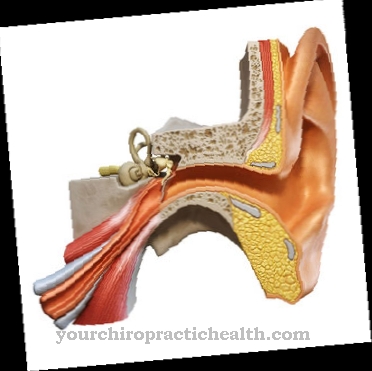
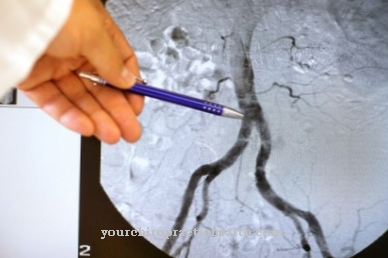
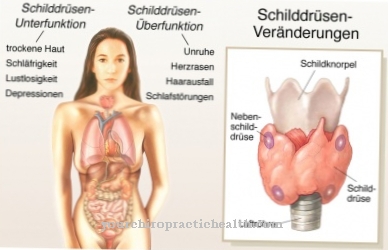
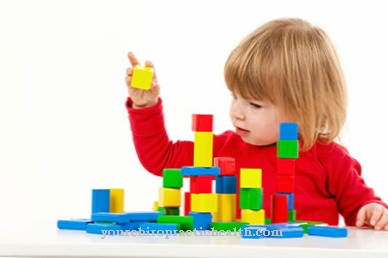
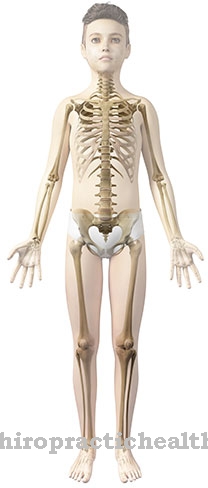
.jpg)




















